
INTRODUCTION
WONO is a decentralized, peer-to-peer (P2P) platform that supports any product and/or service within the growing sharing economy.
The sharing economy is currently a huge growth sector (AirBNB, Uber, Lyft, freelancing, etc.) and isn’t expected to slow down anytime soon. It is estimated to generate to approximately $335 billion by 2025 (up from just $15 in 2014).
The sharing economy’s current main markets are realty, transportation, and services, but other areas where asset allocation is not optimal are growing fast as well.
A major factor in the sharing economy growth is technological innovation, but society’s view of ownership is also changing because people now see that optimal use of resources has benefits for the environment and can help strengthen the community. Many people now believe ownership is overrated and what we are really searching for, and need is access. Instead of buying and owning things, consumers are more and more opting for access to goods, paying for the experience of various forms of sharing. This market paradigm is often called “cooperative consumption.”
With the advent of blockchain technology, companies can now provide a P2P platform that have the following main advantages:
Trust. Transaction information that is recorded on the blockchain are transparent, thereby generating trust between all of the platform participants.
Cost reduction. Elimination, of middlemen layers in a centralized model, eliminates currency exchange fees and international transaction costs. The majority of saving are transferred to primary platform participants.
From the above, it’s easy to see why leveraging blockchain technology is the next step in the sharing economy evolution. However, the big question is: can WONO compete with the other blockchain ICOs that are or plan to enter the sector? Not to mention the risk that the power houses, such as AirBNB, that might eventually convert to blockchain.
I think they do. Read on.
COMPETITIVE ADVANTAGES
In this post I plan to cut out all of the obvious platform capabilities and focus on business models and areas where WONO is unique.
Scope
The first competitive advantage is WONO’s scope. Unlike WONO’s blockchain competitors, WONO plans to create a horizontally structured market that supports the following four main market areas:
- Space sharing. P2P rentals with home-swapping.
- Transportation sharing. Turo/Getaround model where a user can hire or rent out a vehicle for any desired duration.
- Miscellaneous assets sharing. Users can hire or rent out any assets in their possession (e.g. gym memberships, gadgets, instruments).
- Services. Any size freelance job requirement from the micro-job/TaskRabbit model to the mid-to-large Freelancer/Upwork model.
With blockchain, the basics of a sharing transaction can be captured easily between two parties whether it’s real estate, transportation, or a service. Granted, WONO will have to be experts in regulations and laws in several markets, but the foundation of P2P transactions is there. Why not build a platform where you can capture and support all areas within the sharing economy?
In addition, competitors that focus on a single market segment will force their users to exchange their unique token for other platform’s tokens or fiat money. With WONO, no token exchange is needed and if users want to do business within multiple market segments.
Unique Business Models
WONO has created unique, well designed and thought out, algorithms that can calculate input from multiple user datasets. For example, WONO Reputation calculation is derived from seven (7) inputs that adjust over time depending on user behavior (transparency, activity level, reliability, guarantee, arbitrage, cancellation (negative weight), approval).
For detailed information on other areas, I recommend reading WONO’s whitepaper.
Data Analysis
While not unique, all transactions and user behavior is tracked and analyzed to continually enhance the effectiveness of the platform.
I thought this area was worth mentioning because WONO at least outlined a plan to collect user data in order to help build out machine learning, recommendation, and automated scoring capabilities.
Eventually, with enough data, the WONO platform will be able to build out it’s predictive analysis system to provide market forecasts, dispute and conflict prevention, and tweak their Deal Insurance and Arbitrage models.
ICO DISTRIBUTION DETAILS
ICO PROCEED ALLOCATION ESIMATES
ROADMAP
FINAL THOUGHTS
First off, there is a ton of more information in their whitepaper. I hit the what I thought were the main concepts and models to give you a good idea what WONO is about and the value proposition that the plan to bring to the sharing economy sector. If you are excited about like I am, I encourage you to follow WONO’s social media outlets (see Reference Links section below).
I’ve often thought that there should be community rental centers that act like libraries, but instead of checking in and out books, it would be a warehouse of items. Members of the community center could buy and loan out items for community use and fee. This sort of resource optimization makes sense for certain resources. However, it probably doesn’t make sense for other types of resources, even if logically it should. Take a hammer as an example. It probably makes sense to share one hammer between all of the neighbors within my community. Yet, at that price point it’s more convenient to either buy one myself. The same logic applies for an array of other items where it’s just nice to own certain things and not have the hassle of figuring out how to rent it.
WONO says that trust is the major obstacle that is preventing the sharing economy from going vertical, but I believe it’s convenience. Similar to my hammer example, it’s just more convenient to own certain items than find someone that is renting one and coordinate pickup and return. Depending on the asset (and there are many), convenience trumps monetization and optimization. Once a person calculates if the action is worth it, then I agree that there has to be a way to trust the person you plan to transact with. That doesn’t mean there aren’t items where convenience isn’t the biggest factor in a person’ calculus to buy or rent. There are a lot of items that are costly and/or specialized where it makes sense to share. However, those super-costly items, such as a Bobcat, are affordable to businesses that have a model already for renting/sharing. My community library idea acts as a trust, but why do you even need that when you can leverage blockchain to handle the trust issue for you.
Whether WONO likes it or not, the sharing economy blockchain space is getting crowded. WONO listed some in their competitor comparison chart below, but there are more that they haven’t listed such as Dream, CanYa?, Coinlancer, Blocklancer, Rentberry, Bizshake, and WhenHub, just to name a few.
WONO doesn’t believe any specialized blockchain or centralized competitor is a huge threat by themselves, but here is the thing: all of those competitors are still a threat to valuable crypto-market share. Crypto isn’t mainstream yet, and it will be a dogfight to capture users and businesses that believe developing on the WONO API will be valuable. They should drive home the fact that there is no need for multiple platforms, in fact it’s cumbersome to juggle multiple tokens – you just need one great platform and one token!
Normally, I would say that we don’t need another player in this sector, but there whitepaper is strong and I think they have a good narrative for marketing.
WONO is a project that is worth following and I hope to that their platform is everything it says it will be. I can’t wait to try it out.
REFERENCE LINKS
Website
Whitepaper
Telegram
Twitter
bitcointalk
Facebook
These posts have greater value when you comment. Please share your thoughts with the Steemit community.
Traversing the Cryptosphere,
Kryptonaut (GeneralCryptoZod on Telegram)
Bitcointalk profile: johnnyjj

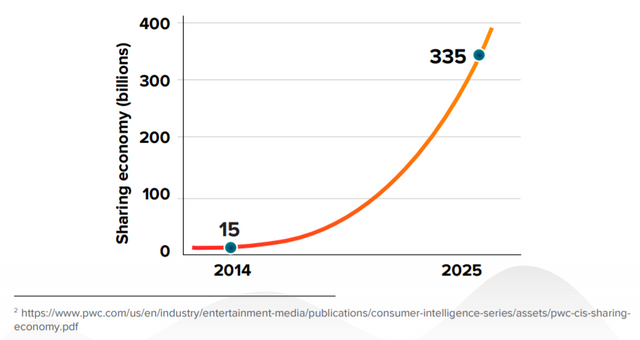
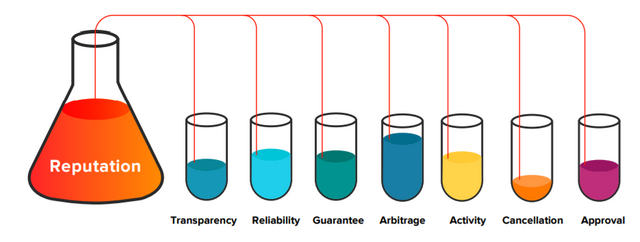
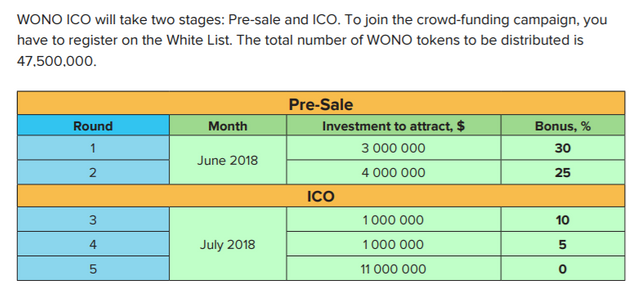
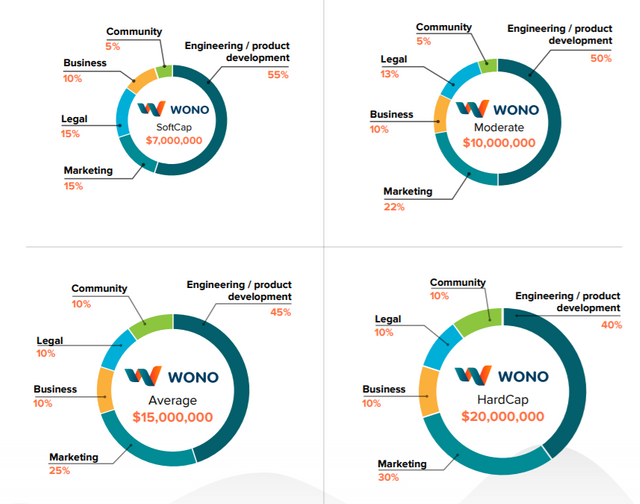
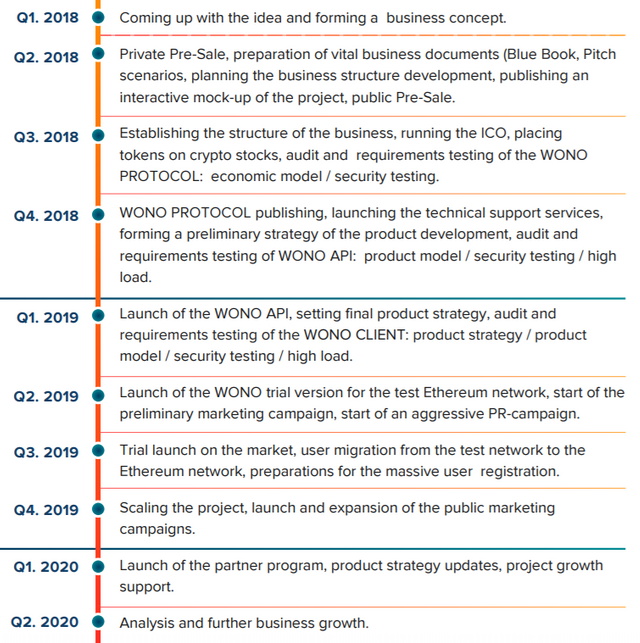
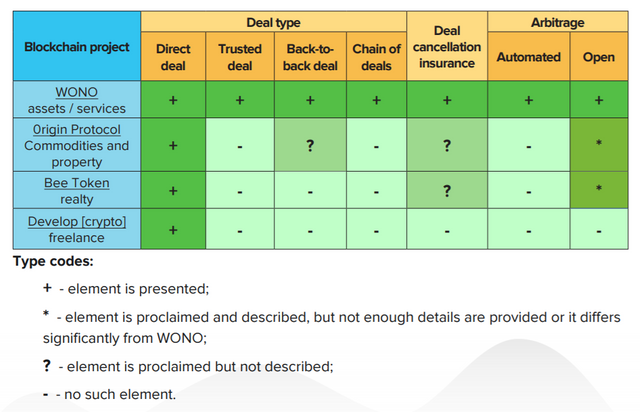
Congratulations! this post got an upvote by @steemrepo and was manually picked by the curator @yanosh01 to be added on STEEM REPOSITORY, simply comment "YES" and we upload it on STEEM REPO Website.
Want to know more about the Steem Repo project? Contact us on Discord
Downvoting a post can decrease pending rewards and make it less visible. Common reasons:
Submit
YES
Downvoting a post can decrease pending rewards and make it less visible. Common reasons:
Submit
Good
Downvoting a post can decrease pending rewards and make it less visible. Common reasons:
Submit
Hi @kryptonaut!
Your post was upvoted by utopian.io in cooperation with steemrepo - supporting knowledge, innovation and technological advancement on the Steem Blockchain.
Contribute to Open Source with utopian.io
Learn how to contribute on our website and join the new open source economy.
Want to chat? Join the Utopian Community on Discord https://discord.gg/h52nFrV
Downvoting a post can decrease pending rewards and make it less visible. Common reasons:
Submit
All in one smart sharing economy project
Downvoting a post can decrease pending rewards and make it less visible. Common reasons:
Submit